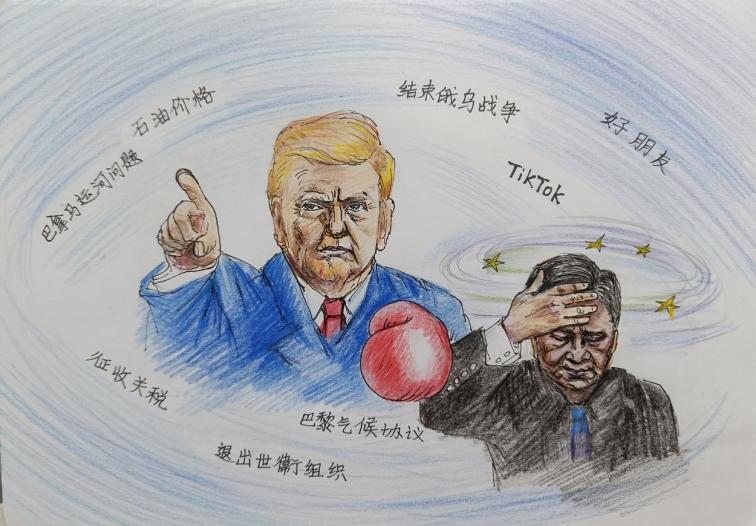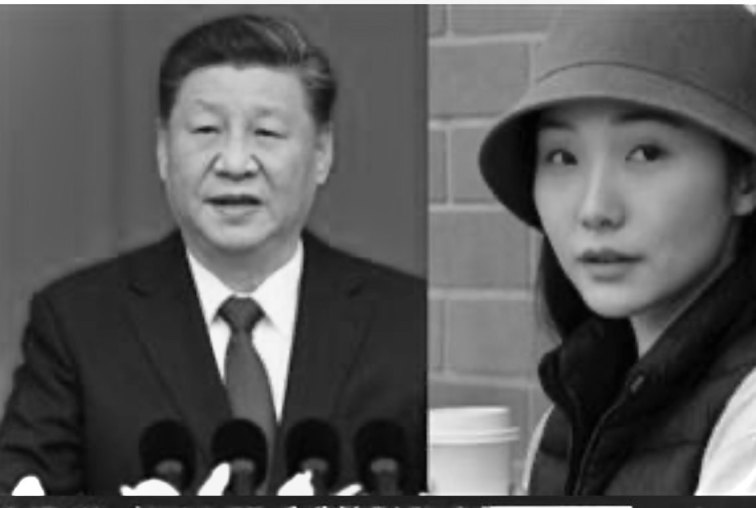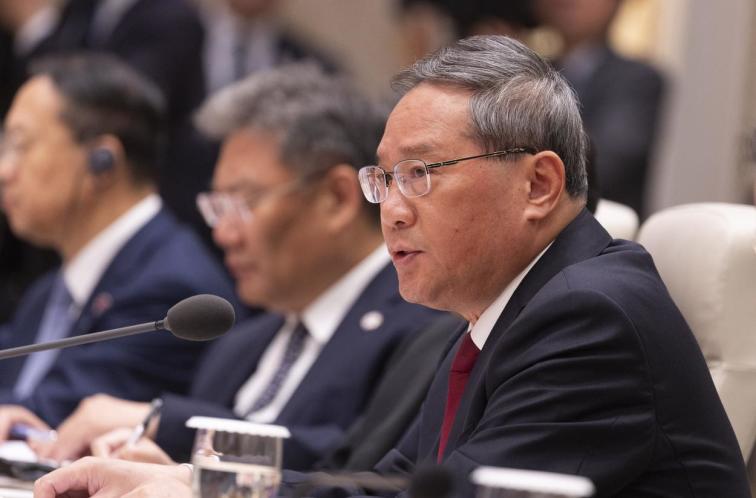On August 5, 2016, a security guard stands outside a restricted compound in Beidaihe, Qinhuangdao, Hebei Province, China. Chinese leaders gather in this coastal city for annual closed-door meetings. (Simon Song/South China Morning Post via Getty Images)
[People News] As senior officials of the Chinese Communist Party (CCP) have come into the public eye, the Beidaihe summer retreat has concluded. In the opaque political environment of the CCP, whether there is a 'meeting' or 'no meeting' at Beidaihe tends to generate significant speculation from outside observers. It is clear that the Beidaihe Conference occupies a unique position in the political history of the CCP, particularly during the eras of Mao Zedong and Deng Xiaoping, when its political functions were especially pronounced. At the 1958 Beidaihe Conference, Mao Zedong made the pivotal decision to initiate the 'Great Leap Forward,' which led China into a major disaster.
Beginning in 1954, Mao Zedong relocated important party meetings to Beidaihe, establishing it as a tradition for significant summer gatherings. This informal meeting has been referred to in various forms, such as 'Politburo Meeting,' 'Expanded Politburo Meeting,' and 'Central Work Meeting,' and has determined numerous key policies and personnel decisions within the party.
For example, the '823 Bombardment,' which is closely related to Taiwan, was a decision made by Mao Zedong during the 1958 Beidaihe Conference. At the same conference, Mao also decided to launch the 'Great Leap Forward,' which led the entire country into the chaos of 'People's Communes' and 'Great Steel Melting.'
In December 1957, the Central Committee of the CCP called on the nation to 'catch up with or surpass Britain in steel and other key industrial products within fifteen years.' This led to a rapid surge in industrial production across the country, marking the beginning of a vigorous 'Great Leap Forward' movement.
In March 1958, the Central Committee of the Communist Party of China held the Chengdu Conference, where Mao Zedong criticised the 'anti-advancement' actions taken by rightist elements within the party in 1957, describing it as a 'fundamental error.' He asserted that the correct approach to building socialism is to 'boost morale, strive for progress, and achieve more, better, faster, and cheaper.' This directive from Mao can be viewed as a further impetus for the 'Great Leap Forward.'
On April 15, 1958, Mao Zedong continued to advance the 'Great Leap Forward' movement in his article titled 'Introducing a Cooperative.'
From May 5 to 23, 1958, during the second session of the Eighth National Congress convened by the Communist Party of China, Mao Zedong delivered significant speeches promoting the 'Great Leap Forward.' At this meeting, following Mao's guidance, the overarching principle of 'to boost morale, strive for progress, and achieve more, better, faster, and cheaper' was established, serving as the programmatic slogan for the comprehensive call to initiate the 'Great Leap Forward.'
From August 17 to 30 of the same year, the Political Bureau of the Central Committee of the Communist Party of China convened an expanded meeting in Beidaihe. Participants included members of the Political Bureau, first secretaries of party committees from various provinces, cities, and autonomous regions, as well as leaders from the party organisations of state agencies.
Mao Zedong made a series of definitive decisions regarding the 'Great Leap Forward' and the people's commune movement that had been underway for nearly a year. The key decisions included: first, a call for the entire party and the populace to strive for the production of 10.7 million tons of steel in 1958; second, the establishment of people's communes in rural areas; and third, the launch of a widespread socialist and communist education campaign in rural areas during the winter and spring of the following year.
For those who fail to contribute effectively to the large-scale steel production, the meeting established six strict disciplinary measures: 1. Warning; 2. Record of demerit; 3. Dismissal with retention; 4. Party probation; 5. Dismissal; 6. Expulsion from the Party.
Following the Beidaihe Conference, the 'Great Leap Forward' and the people's commune movement commenced on an unprecedented scale. By 1958, collectivisation had been achieved across the entire rural landscape. In both rural fields and urban government courtyards, towering blast furnaces for steel and iron production were ablaze.
However, by the end of August 1958, the national steel output stood at only 4.5 million tons, with just four months remaining to meet the target of 6.5 million tons. On September 1, the People's Daily issued a communiqué urging the entire Party and populace to strive for the production of 10.7 million tons of steel. The editorial emphasised, 'The steel industry is the foundation of the entire industrial sector, the backbone of the entire industry, and the commander of the entire industrial effort.' It called on other sectors to 'halt operations to allow the steel commander to take charge.' It asserted that 'ensuring the doubling of steel output is the most critical task for the entire Party and populace at this moment.'
As a result, a nationwide mass movement for steel production was initiated throughout China. Thousands of individuals, regardless of their profession, gender, or age, rushed to the front lines, with the labour force increasing from several hundred thousand at the end of July to 60 million. The number of blast furnaces skyrocketed from 30,000 to millions. Furthermore, most of the materials were sourced from households, including pots and other iron items.
This represents an unimaginable historical spectacle: the world's most populous nation, within just over a hundred days, dedicated itself day and night to the steel production movement.
On December 19, 1958, the Central Committee of the Communist Party of China announced that it had completed the task of doubling steel production 12 days ahead of schedule, achieving an output of 1.108 million tons of steel and 13.69 million tons of pig iron.
However, the 'Great Leap Forward' and the collectivisation of agriculture ultimately came at a tremendous economic cost. The disruption of the rational economic order, the destruction of agricultural and industrial production resources, and the damage to already limited material reserves were unprecedented.
The Great Leap Forward also led to a surge of negative trends across the country. The People's Communes incited a 'Communist Wind', while inflated targets sparked a 'Grandiosity Wind', resulting in widespread corruption, officials misleading both their superiors and subordinates, and many people starving to death or perishing in violent incidents. This period culminated in the Great Famine from 1958 to 1962, with estimates from various scholars and research institutions indicating that between 30 million and 55 million people died from unnatural causes as a result. Additionally, the environmental degradation during the Great Leap Forward and the reckless construction of reservoirs directly or indirectly contributed to one of the most severe man-made disasters in history, the 'Henan 75.8 Reservoir Collapse' in Zhumadian, Henan, in August 1975, as well as the catastrophic flood in Ankang, Shaanxi Province, in 1983.
The Great Leap Forward also drew significant criticism both within the Communist Party and from the public, facing resistance from farmers. The Soviet Union's scepticism regarding the People's Communes further exacerbated the rift between the two nations.
In January 1961, in response to the severe consequences of the Great Leap Forward, the Eighth Plenary Session of the Eighth Central Committee of the Communist Party of China officially decided to implement the "Eight Character Guideline" aimed at adjusting the national economy, which marked the end of the Great Leap Forward movement. Later, at the "Seven Thousand Person Conference" in early 1962, criticisms of the Great Leap Forward and other policies by then Chairman of the People's Republic of China Liu Shaoqi and others led to dissatisfaction from Communist Party Chairman Mao Zedong. This resulted in a split between Mao Zedong and the collective leadership within the Communist Party, forcing Mao to temporarily step back from a position of power, which ultimately led him to initiate the Four Cleanups Movement in 1963 and the Cultural Revolution in 1966.
History tends to repeat itself. After Xi Jinping assumed power, public opinion from various sectors criticised him for retracing Mao Zedong's old path, rapidly consolidating personal authority and a dictatorial regime, and attempting to revert China to the Mao Zedong era.
In 2022, media figure Chang Ping published an article titled "Will Xi Jinping Face a 'Seven Thousand Person Conference' in the Context of the 'Great Leap Forward' in Epidemic Prevention?" on Deutsche Welle.
Chang Ping remarked that China is currently facing the severe repercussions following three years of a "Great Leap Forward" in epidemic prevention; at the same time, the authorities are repeating the actions of sixty years ago, disregarding the hardships of the populace while continuing to sing praises and promote their achievements.
Chang Ping referenced an example from the People's Daily, which on December 15, 2022, published an "Important Commentary" signed by "Ren Zhongping" titled "Three Years of Pandemic Control, This is How We Walked Together with One Heart." The article employed a literary style reminiscent of the Great Leap Forward, creating a fabricated scene that read: "In factory workshops, machines roar; on streets and alleys, people come and go; on highways and railways, vehicles shuttle; in supermarkets and shopping malls, goods are plentiful and prices stable; in vast fields, vitality flourishes... At the end of the Year of the Tiger, the land of China is brimming with vibrant energy, showcasing countless phenomena." Chang Ping wryly noted that it felt as if time had reversed.
In stark contrast, all information from the Chinese public at that time painted a different picture: China was grappling with a pandemic tsunami, abruptly shifting from a policy of "zero positive cases" to "zero negative cases." The public was rushing to buy medicines, hospitals were overwhelmed, funeral homes had long lines, and there was widespread panic, with markets in disarray.
The Chinese National Health Commission reported that after two death cases were recorded on December 3, two additional cases were reported on December 18. Chang Ping remarked that this absurd lie has far surpassed the "great satellite launch" of grain and steel production from sixty years ago.
In February of this year, the French media outlet Le Figaro published an extensive report analysing Xi Jinping's strong push for the development strategy of the Chinese Communist Party's military, which has been characterised as a military Great Leap Forward.
The report examines Xi Jinping's efforts to restructure China's vast military since he took office in 2013, focusing on the aggressive development of the strategic weapons arsenal. His goal is to conquer Taiwan and achieve parity with the United States by 2049, which marks the 100th anniversary of the Communist Party's founding. To achieve this, Xi Jinping intends to challenge the United States on multiple fronts, including nuclear capabilities. In response to this challenge, the Chinese Communist Party has embarked on an extraordinary military catch-up campaign in recent years. By 2023, the military budget will have risen by 7.2%, representing 43% of total military spending in Asia.
On December 26, 2023, Xi Jinping, along with top Communist Party leaders including Li Qiang, Zhao Leji, Wang Huning, Cai Qi, Ding Xuexiang, and Li Xi, visited the 'Mao Zedong Memorial Hall' before attending a symposium organised by the Central Committee to commemorate the 130th anniversary of Mao Zedong's birth. Notably, the party publication referred to Xi Jinping as the 'People's Leader,' a title traditionally associated with Mao Zedong.
It is widely recognised that China's economy is currently sluggish, characterised by high-pressure internal controls and a confrontational 'wolf warrior' diplomacy, placing the country in a challenging position both domestically and internationally. The recent Beidaihe secret meeting raises questions about whether Xi Jinping faced a palace coup reminiscent of Mao Zedong's 'Seven Thousand Cadres Conference.' However, how far can he continue down Mao Zedong's historical path?
(People News first published) △











News magazine bootstrap themes!
I like this themes, fast loading and look profesional
Thank you Carlos!
You're welcome!
Please support me with give positive rating!
Yes Sure!